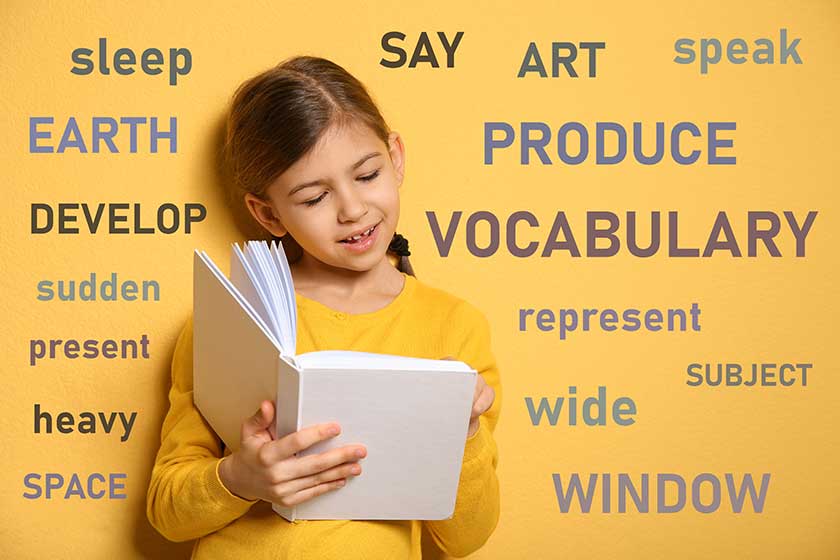
Expanding vocabulary for kids early fosters confident communication skills and a solid academic foundation. Parents play a key role in introducing methods that make learning words enjoyable and meaningful. Focusing on simple, consistent activities supports young learners in mastering language concepts.
Using Flashcards to Enhance Kids Vocabulary Skills
Flashcards provide an engaging and structured way to introduce new words. Each card presents a word visually, often paired with a picture to help children associate its meaning. This method simplifies learning and makes it enjoyable by offering a clear, focused approach to word recognition. Consistently practicing with flashcards supports memory retention and helps kids recall words during daily conversations or while reading. Parents can rotate cards regularly, ensuring exposure to a diverse set of words that match their child’s age and comprehension level. Using themed sets can further connect learning with real-world applications.
Incorporating Reading into Daily Routine for Vocabulary
Regular reading exposes children to a variety of words in meaningful contexts. Selecting age-appropriate books encourages curiosity and builds a natural interest in exploring language. Parents can read aloud, allowing kids to hear pronunciation while discussing unfamiliar words. This interactive method strengthens word comprehension and retention.
Repetition reinforces learning when children read the same book multiple times. Familiar stories allow them to notice details and grasp deeper meanings. Incorporating books with rhymes or stories featuring rich language ensures exposure to diverse vocabulary in a fun and memorable way.
Teaching New Words Through Fun Interactive Games
Games create an exciting environment for children to learn without feeling pressured. Activities like word-matching or charades encourage them to connect meanings with actions. Simple games using everyday objects also enhance language association while keeping children engaged.
Story-building games inspire creativity and teach sentence structure while introducing new words. In this activity, each participant adds a sentence, incorporating a new word, to create a collaborative story. These approaches help children expand their vocabulary while fostering teamwork and communication skills.
Encouraging Conversations to Boost Kids Vocabulary Growth
Active conversations expose children to a variety of words in real-world contexts. Parents can use descriptive language during daily activities, offering synonyms or detailed explanations of terms. Asking open-ended questions allows children to express themselves and learn from responses.
Creating opportunities for storytelling helps kids use new words while developing their narrative skills. Parents can guide these conversations, introducing phrases or words that encourage them to expand their vocabulary naturally.
Introducing Vocabulary Building Apps for Kids Learning
Educational apps designed for children combine technology with interactive learning experiences. Many apps offer fun activities like matching words to pictures, spelling challenges, or interactive quizzes. These tools encourage independent learning while reinforcing vocabulary concepts.
Gamified apps reward progress, making the learning process enjoyable and motivating for kids. Parents can monitor their child’s progress by selecting apps with features that track improvement in word usage and comprehension. Choosing user-friendly platforms ensures a balance between fun and educational value.
Using Context Clues to Improve Kids Vocabulary
Encouraging children to deduce the meaning of unfamiliar words from surrounding sentences enhances comprehension. Teaching them to identify context clues, like synonyms or antonyms in a passage, builds problem-solving skills. This technique works well during reading sessions, helping children unlock meanings without external assistance.
Parents can model this approach by asking questions about word meanings based on the text. Gradually, children will develop confidence in using context clues independently, a skill that benefits them in academic and everyday settings.
Measuring Progress in Kids Vocabulary Improvement
Tracking a child’s vocabulary growth ensures steady progress. Parents can create simple tests, such as asking them to define or use new words in a sentence. Keeping a word journal helps record daily learnings, allowing both parents and children to see tangible results.
Regular review sessions help reinforce words already learned, while introducing new challenges. Activities like storytelling competitions or spelling bees offer fun ways to assess and improve vocabulary skills. This consistent approach promotes sustained learning, helping children build a strong language foundation.
Boost Vocabulary Skills with NFC Academy’s Elementary Homeschool Programs
At NFC Academy, our accredited elementary programs focus on building strong vocabulary skills for young learners in grades K-5. Through engaging phonics, reading, and writing activities, students expand their language comprehension in a structured and enjoyable way.
Our curriculum incorporates interactive lessons and daily planners to guide parents and children step by step, ensuring steady progress in vocabulary and overall language development. With NFC Academy’s faith-based values and tailored learning approach, your child will gain the tools needed for confident communication and academic success. Enroll today to begin their enriching educational journey!



